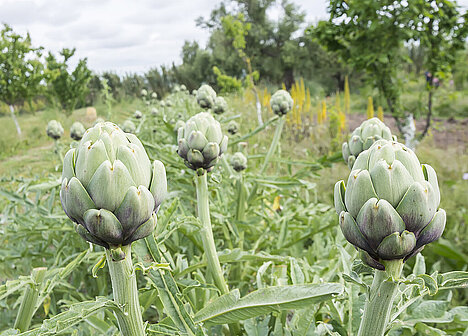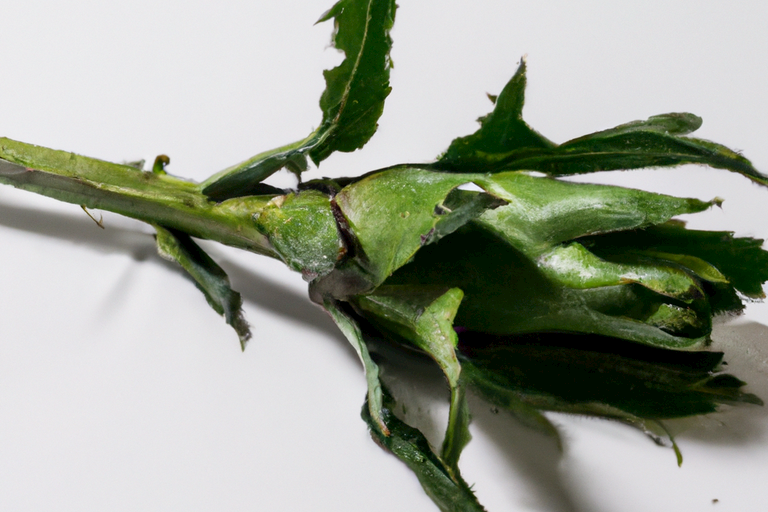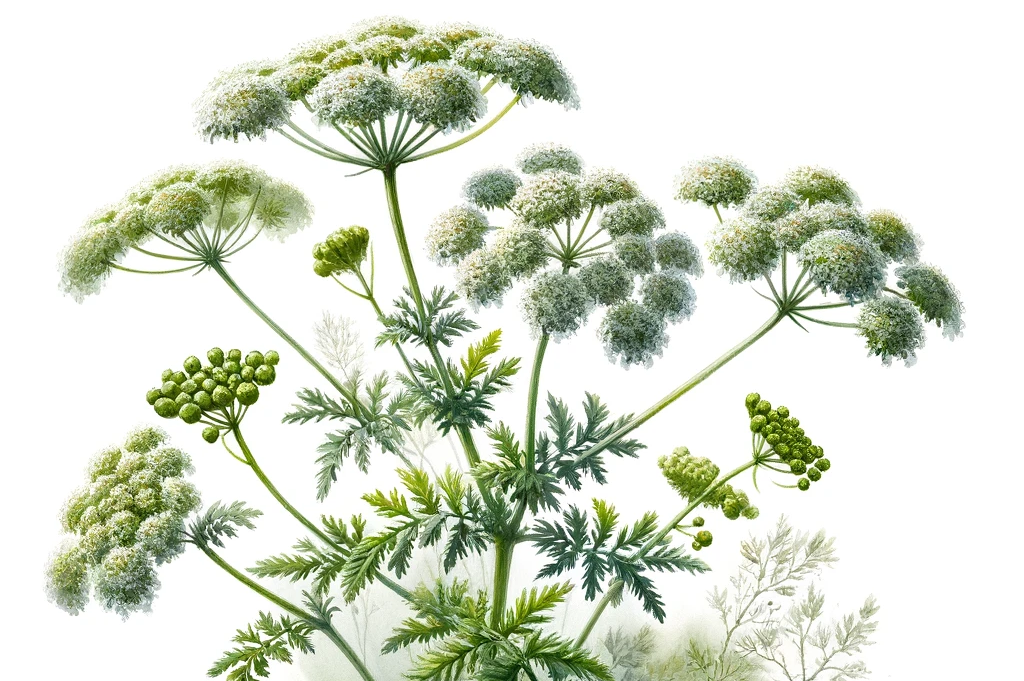Cardi

What is cardoon?
Cardoon (Cynara cardunculus) is a type of thistle that is closely related to the artichoke. The plant is mainly cultivated in southern Europe and North Africa and is used as a vegetable or fodder plant. The edible parts are the fleshy leaf stalks and the flower buds. Cardi has a slightly bitter taste and a high nutrient density. Among other things, it contains vitamin C, potassium, magnesium, iron and fiber.
What are the benefits of cardi for dogs?
Cardi can have several health benefits for dogs when fed in moderation. Firstly, it can aid digestion as it stimulates intestinal movement and supports the production of bile. Secondly, it can improve liver function as it speeds up detoxification of the body and protects liver cells. It can also strengthen the immune system as it has an antioxidant effect and inhibits inflammation.
What are the disadvantages of kardi for dogs?
Cardio is not suitable for all dogs and should only be fed after consultation with a vet. On the one hand, it can lead to gastrointestinal complaints in sensitive dogs, such as flatulence, diarrhea or vomiting. On the other hand, it can lead to complications in dogs with kidney problems or cardiovascular disease, as it increases the potassium level in the blood and lowers blood pressure. Cardi should also not be fed to pregnant or nursing bitches, as it can stimulate labor.
How do you feed cardi to dogs?
If you want to feed your dog kardi, you should bear a few points in mind. Firstly, you should only use fresh or dried kardi and not canned or pickled products. Secondly, you should wash the kardi well and cut it into small pieces to remove any harmful substances or thorns. Thirdly, cardoon should only be given as a supplement to the normal feed and should not make up more than 10% of the daily ration. Fourthly, you should introduce the kardi slowly and observe your dog's reaction. If you have any doubts as to whether your dog can tolerate cardio or how much you can give him, ask your vet for advice.
Cardi is an interesting ingredient for dogs that can have some health benefits. However, it is not suitable for every dog and should only be fed in moderation. If you want to give your dog some variety, you can offer him some cardi now and then, but always with caution and responsibility.
If you notice any signs of hypersensitivity or poisoning in your dog, you should see your vet immediately. We are not a substitute for a vet, but we try to be as accurate as possible. Every dog reacts differently and we recommend you get a second opinion or consult your vet if in doubt.
Stay healthy and take good care of your four-legged friend!😊
Similar to Cardi
Dandelion root is the underground part of the dandelion plant. It is brown, woody and has many small fibers. The root contains various ingredients that can have a positive effect on dogs' health....
Artichoke leaves are the green leaves of the artichoke that surround the flower bud. They are often boiled and peeled off to eat the soft flesh at the base. The leaves contain many nutrients such as...
Stinging nettles are herbaceous plants from the nettle family. They grow in Europe, Asia and North America and prefer moist, nutrient-rich locations. The best-known species are the common nettle...
Yarrow (Achillea millefolium) is a perennial plant from the Asteraceae family. It has finely pinnate leaves and white or pink flowers that are arranged in flat umbels. The plant grows to a height of...



